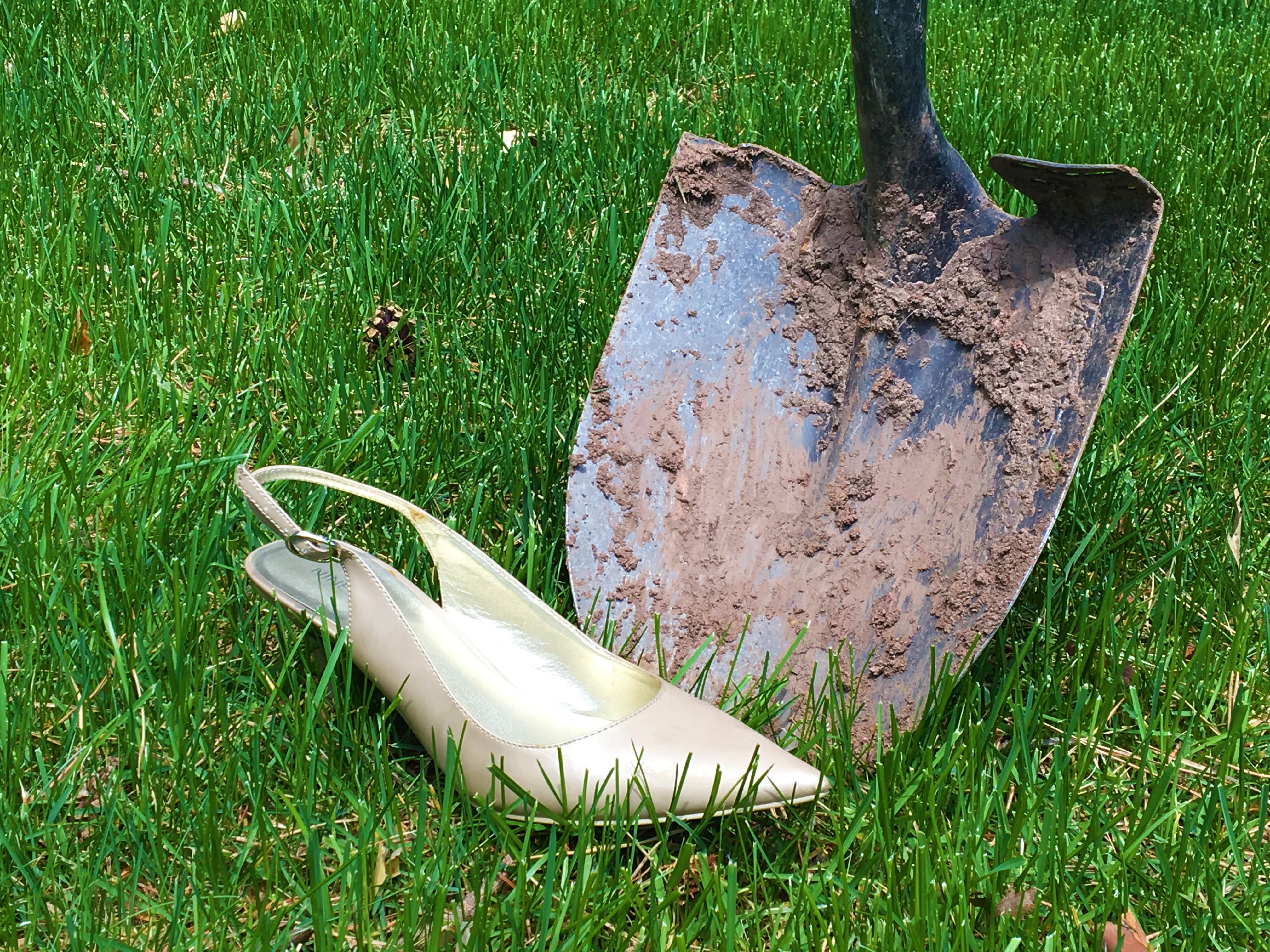
I am one of the little people, it turns out. You know, the kind of person whose job is to make the lives of the big people—the people with the big jobs, the people who are busy, the people with things to do—easier.
My life is not hard, but as we’ll see, that’s kind of the point.
It’s a life of service, but not the Boy Scout kind. It’s more of the life of a service person, the kind who picks up the fringe pieces, whose life revolves around the daily demands of a career, but not his own. In this way I am like the live-in nanny, the groundskeeper, the handyman, and probably a host of other jobs in the gig economy: grocery shopper, chauffer, library runner.
This is kind of my life now.
I used to be one of those big, or at least bigger, people. Tenured professor. College administrator. Far cries from senator or CEO, to be sure, but on the bell curve of American jobs, this had to be one of the “good ones.”
And my wife’s job, too, is considered one of the “good ones,” if not the “great ones,” as long as you ignore some important metrics, like crazy schedules and years of training and moving around and the current business models of hospital systems and dealing with people who Just. Must. Hate. Their. Bodies. But good, nonetheless.
Many people have been asking where all the good jobs have gone. Mexico, many people will say. Automation, too. Maybe Amazon and its tycoon, Jeff Bezos. Well, a part of that answer is much less dramatic and much less politically popular. The answer is that we had them, my wife and I. Both of us.
The “good jobs” didn’t “go” anywhere. We were hoarding them.
Essays that harken to the good ol’ days in the last century often miss the point, I think, but I’ll indulge myself, and you, for a quick tour. It seems that, many decades ago, families supposedly had single breadwinners, and the legend goes that so, so, so many of them had “good jobs.” You know, the jobs that people now claim made “living wages,” or, more specifically, living wages for an entire family of four, or eight, or whatever that means. These “good jobs” were spread out nicely among the households, legend has it.
Of course, “breadwinner” in most cases was code for “man.” But then we got the oh-so dastardly idea that women could and should work outside the home. This changed things economically in this country, and in ways more nuanced and complex than a single essay, or book, could reveal. But suffice it to say that our culture is different today because both sexes, and therefore often both parents, work outside the home.
It seems that one major consequence of that change is the concentration of economic power into fewer households. This has always been the case, I suppose: this family marries that family, keeping wealth in the families, or in the country club. But now, due only to the fact that driven, intelligent, work-oriented people might indeed be attracted to each other, we have households that have not one “good job,” but two “good jobs.”
The power couple.
Again, I was in one of these, at least by some metrics, economically speaking. My wife and I each made over the median household income. We concentrated wealth in our house. And then, when our son was born, we… didn’t.
And guess what that looks like? The former professor becomes, economically speaking, the nanny. I do nothing that we couldn’t pay someone else—maybe a college-age kid—to do. Sure, it’s different when the parent spends time parenting the child, which is why I do it. But I do a lot of tedious, boring, borderline mind-numbing stuff in my day-to-day life. And who would do that if I didn’t?
We’d have people for that. And, because each job is so tedious and boring and… well… easy, we wouldn’t pay them very much, either.
If I were still working, I wouldn’t have time to do a lot of the stuff that I do around the house and with my son. We’d pay someone to watch/raise him until preschool, at which time we’d pay someone else to teach him, which would continue into and past kindergarten. This seems like a growing function of our public schools in general, actually: we pay them less and less to teach our children, and more and more to babysit and maybe even parent them so we can go make our money.
We’d have people to clean the house, too, maybe. Cut the grass. Shovel the snow.
God, yes—definitely shovel the snow.
It wouldn’t be worth our time to be doing a lot of these things, probably. Certainly not my wife’s time, anyway. Any hour we spent doing any of these things would be better spent improving our job performance, or recuperating from our job performance, or ramping up for our job performance. It would make a certain kind of economic sense to hire these things out.
Cheaply, of course. See, these aren’t the good jobs.
As a society, for every power couple we create, we also create a market for boring, low-paying, dead-end service jobs to cater to that couple, and that couple’s family. In the past—or in the present for some of us—one half of the couple does a lot of this tedious stuff. In my wife’s and my case, that means that by staying home I’ve deflated demand for a lot of crappy service jobs, all while opening up a “good job” for someone else to take. In theory, anyway.
In general, it’s an uncomfortable truth of having both sexes working that we’ve further tilted the socioeconomic scales, and have accelerated household inequality, and have done so for the semi-biological reason of non-random mating. Career-driven people will meet and fornicate with each other, if for no other reason than they can meet at work, or in college. Also, because they spend so much time at work, or in college, they don’t see other people. As a result, they’ll hook up and have families with each other, and their kids will be the kids of an economic power couple, the kind that hires a lot of little people to make their lives easier.
And when those kids grow up, guess what they’ll be? Let’s just say that Mom and Dad probably won’t be sending them off to the Burger King job fair. Mom and Dad might not even want them to have menial jobs at all—they’d be better off building a resume at this camp or in that club or on that team or on that service project. Also, a kid in a menial job might keep the family from going on their precious vacations during the little time that the parents get off from work. And that might sound facetious, but it makes a certain kind of sense: a lot of those power couples work a lot.
And when it’s time for those power-couple kids to go to college, they won’t be going to Shitkicker State, either. I mean, why did Mom and Dad work so hard if not to send their kid to a good college? So, the kids will go to one of Those Schools, where they will meet kids like they are, and will fornicate with them, and eventually have kids of their own, who will…
You get the idea.
I don’t know that any of this is a problem, really, until I think about a lot of the people who ask where all the good jobs went. Or why there is so much inequality in this country. Sure, sure, the super-rich are taking everything, and we all have a god-given right to be super-livid about it, all the time, no matter what. Fine. But another answer is far less convenient despite the fact that it is right in front of us, in the mirror: the power couple.
And I’m not talking about his-and-her CEO careers, and matching Mercedes, necessarily. Let’s just start with people who, like my wife and I years ago, both make above the median household income. These people are, at root, hoarding “the good jobs.” They don’t need two of them, probably. All things considered, they and their kids might be better off if they gave one up, actually.
Do they? Rarely.
Yes, yes, I gave mine up, and it sounds like I’m being self-righteous. Maybe that’s true—let’s not rule it out. But at best, there’s some hypocrisy when hoarders complain about scarcity. The next time you hear or read someone complaining about inequality, or the next time you hear or read someone complaining about the lack of “living-wage jobs,” don’t think just about Mexico, or Jeff Bezos, or some other economic boogeyman. Think about whether that person is in a power couple, and whether another household could use one of those jobs.
And then, think about me. You know, one of the little people.

P. A. Jensen is editor of RuralityCheck.com.
He lives in northern Minnesota with his wife and son.



